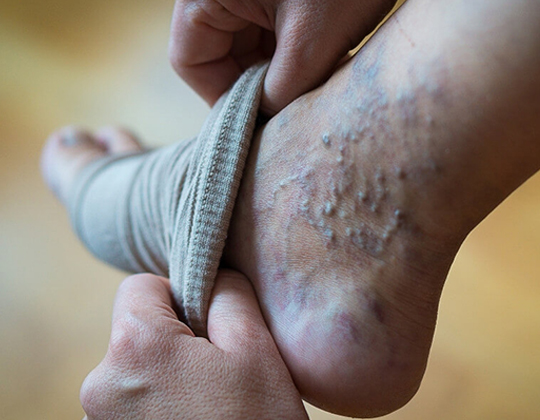Call :

Varicose veins, also known as varicoses, are a medical condition in which superficial veins become enlarged and twisted. These veins typically develop in the legs, just under the skin. Varicose veins usually cause few symptoms. However, some individuals may experience fatigue or pain in the area. Complications can include bleeding or superficial thrombophlebitis.[2][1] Varices in the scrotum are known as a varicocele, while those around the anus are known as haemorrhoids. Due to the various physical, social, and psychological effects of varicose veins, they can negatively affect one's quality of life.
Varicose veins have no specific cause. Risk factors include obesity, lack of exercise, leg trauma, and family history of the condition. They also develop more commonly during pregnancy. Occasionally they result from chronic venous insufficiency. Underlying causes include weak or damaged valves in the veins. They are typically diagnosed by examination, including observation by ultrasound.
By contrast, spider veins affect the capillaries and are smaller. Treatment may involve lifestyle changes or medical procedures with the goal of improving symptoms and appearance. Lifestyle changes may include wearing compression stockings, exercising, elevating the legs, and weight loss.
In Ayurveda, everyone is made up of a unique balance of three doshas, or humors. These are:
- vata (air and space)
- pitta (fire and water)
- kapha (earth and water)
Each dosha can have an impact on specific body functions, with imbalances producing illness. Because of this, Ayurvedic treatments focus on keeping the three doshas in balance.
Varicose veins happen due to imbalance of vata.
Copyright © 2023. All right reserved. Zivik Biosciences

